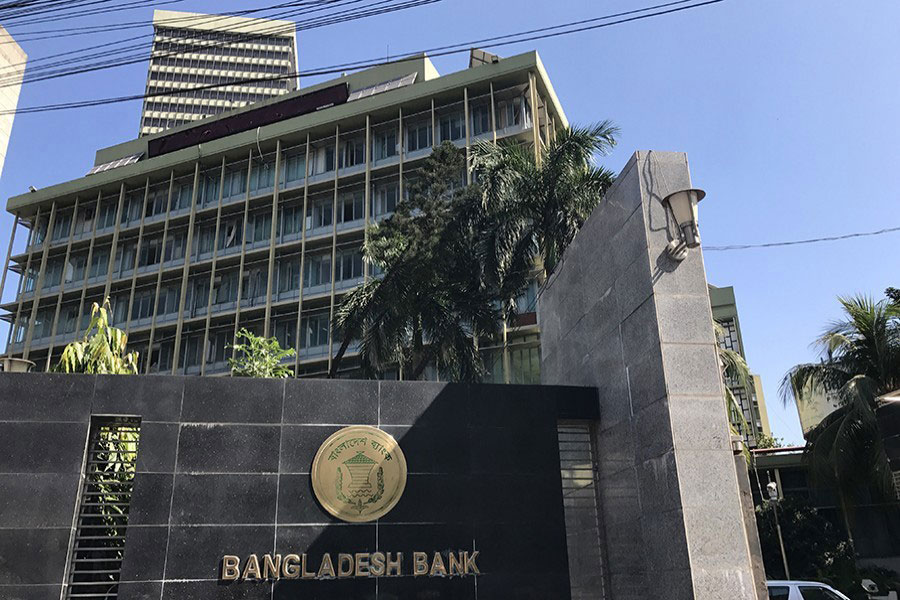
Published :
Updated :

The banking sector in Bangladesh has been dealing with persistent challenges, one of which is the substantial rise of non-performing loans (NPLs). NPLs have risen to worrying levels over time, disrupting the financial sector and contributing to broader economic instability. As of March of this year, the total amount of such loans was Tk 1.82 lakh crore. Furthermore, many bad loans remain unresolved due to write-offs, rescheduling, restructuring, and continuing legal proceedings. Taking this into consideration, experts believe the actual value of defaulted loans may exceed Tk 4 lakh crore.
This problem is exacerbated by a lack of discipline and governance throughout the sector, where inefficiencies and corruption have become endemic. The 160 billion taka LC scam at Social Islami Bank is a noticeable example of such grievous misconduct.
Another critical problem plaguing the industry is the prevalence of banking scams and financial embezzlement. These scandals have siphoned off substantial amounts of money, further weakening the already fragile sector. For instance, the illegal acquisition of loans amounting to Tk 300 billion from Islami Bank shows the scale of financial misconduct. Adding to these woes is the ineffective regulatory oversight by the Bangladesh Bank and other authorities that has allowed these corrupt practices to flourish unchecked. Inadequate supervision has also paved the way for politically influenced bank licensing, where new private banks are granted licenses based on political clout rather than economic necessity, further eroding the sector's integrity.
The concentration of ownership within the banking sector has led to conflicts of interest, with single individuals or groups controlling multiple banks. Furthermore, the existing legal framework, including the Banking Company Act, contains loopholes that have permitted unethical practices, such as extending bank directors' tenure initially from six to nine years before the 2018 election and further to twelve years through an amendment to the Act. These extensions have allowed directors' prolonged control over banking operations, often leading to entrenched corrupt practices.
Governance structures within banks have also come under pressure, owing to the influence of politically connected individuals, which contributed to the sector's problems. Concerns regarding illicit financial flows and money laundering have intensified, leading to proposals to strengthen the Bangladesh Financial Intelligence Unit (BFIU) to combat these challenges. However, a lack of transparency and accountability in bank operations, particularly in the release of data and the investigation of previous financial crises, remains a key obstacle.
Furthermore, the government's large borrowing from the banking sector has put pressure on the economy, reducing the availability of credit to the private sector and creating a 'crowding out' issue. This has further restricted financing for small and medium enterprises (SMEs), since banks have prioritised big corporate organisations over the requirements of smaller firms.
The access of private banks and non-bank financial institutions (NBFIs) to obtain a larger share of funds from government, non-government, and autonomous bodies increased from 25 to 50 per cent, which has only fuelled concerns about mismanagement and overexposure.
Given these challenges, the interim government's move to establish a new banking commission is a welcome step toward addressing the sector's ongoing troubles. The committee, scheduled to propose a roadmap within 100 days, is expected to bring a charge of implementing long-term financial reforms.
The Centre for Policy Dialogue (CPD) has been at the forefront of advocating for such a commission. Dr Fahmida Khatun, Executive Director of CPD, stated, "We have been demanding such a commission for many years. It will make appropriate decisions and help the banking sector get rid of persistent issues." She emphasised that the commission be time-bound, specific goal-oriented, and task-based, with a focus on removing scopes for scams and taking decisive action against anyone found responsible.
The commission will also have to address the problem of political influence in the banking sector. The previous government approved multiple banks for political reasons, a practice that must be stopped to protect the sector's future. The CPD stressed the commission's need to restore order in the sector by identifying the core causes of the problems and offering policy measures.
The commission will also focus on controlling inflation, a key concern for the country. Bangladesh has seen high inflation in the past year and a half, with the inflation rate averaging above 10 per cent, the highest among South Asian countries after Pakistan. According to the Bangladesh Bureau of Statistics (BBS), the country had its highest inflation in recent years in July 2024, when overall inflation rate soared to 11.66 per cent and food inflation reached 14.16 per cent.
The commission will also have to handle the USD deficit, aggravated by widespread money laundering and increasing import payments after the COVID-19 crisis. The country's foreign exchange reserves have plummeted from $48 billion to less than $20 billion, triggering a forex crisis. To address this, the central bank governor has decided to raise the existing interbank foreign exchange transaction band from 1 to 2.5 per cent to increase liquidity.
When the commission begins its work, it will face various challenges. However, with the correct strategy and support of all major parties, it is expected to revive the banking sector and put the economy on track.
robin.tareq@gmail.com


 For all latest news, follow The Financial Express Google News channel.
For all latest news, follow The Financial Express Google News channel.